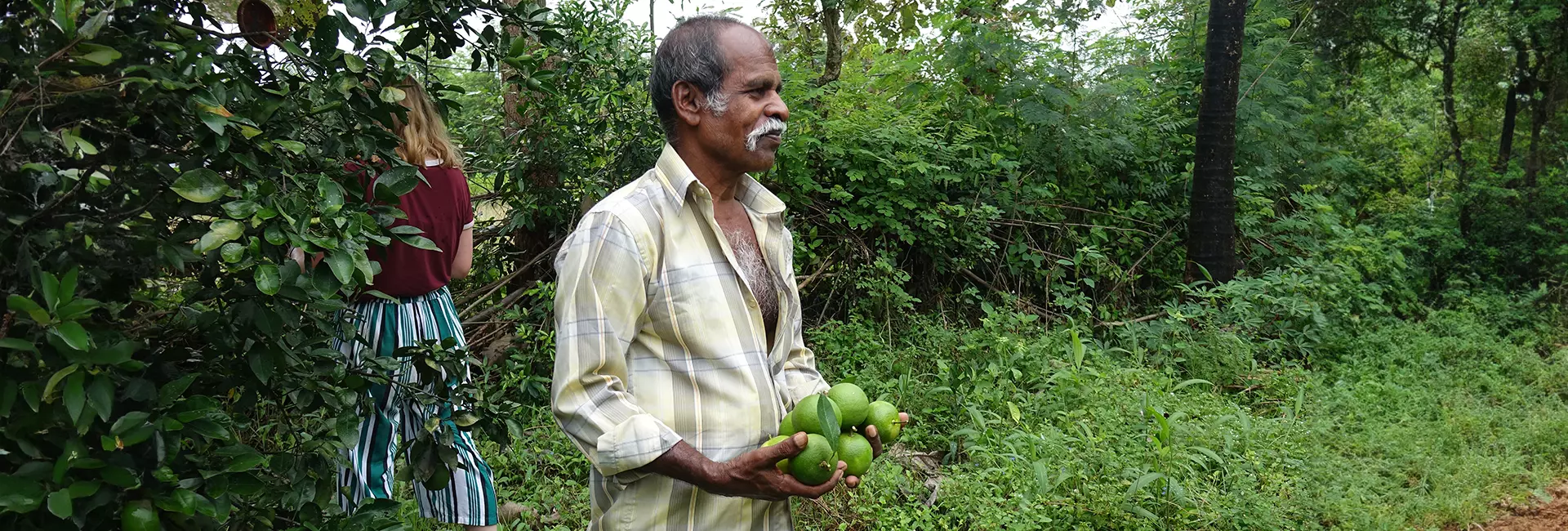12 years ago, The Great Elephant Project began a unique initiative to avoid increasing Human-Elephant Conflict (HEC) in the local communities in and around Wasgamuwa National Park.
As of last month, they have reached a major milestone with this incredible HEC solution, which is all centred around oranges… yes, you read it right, oranges!
Let’s go back to the roots of this new project: it all started when data collected on elephant food preferences revealed that they have a real distaste for oranges and citrus fruits in general. So much so, that the mammals completely avoided going anywhere near them!
The project then thought that they could plant orange trees where HEC occurs in the communities surrounding Wasgamuwa National Park, in an attempt to deter the elephants from raiding them. World-renowned organisations such as Born Free Foundation and Elephant Care International helped to fund trial orange barriers which proved to be successful and this project is now expanding with the continued help of external organisations!
The communities have been organically cultivating orange trees with the aim of branching out and selling them to local supermarkets as a source of income for locals, as well as a solution for HEC. In January, this elephant conservation project distributed 2026 grafted orange plants among 8 villages, as part of efforts to achieve a further goal of establishing a small-holder orange cultivation network. As of February, The Great Elephant Project delivered over 200 kilograms of oranges to a local supermarket chain! This marked the day where this initiative achieved all the benchmarks it set out to establish 12 years ago.

This first sale has set in motion a successful and sustainable community participatory measure that helps humans and elephants to coexist in harmony.
One of the reasons that this initiative is simply genius, is that it financially supports local communities, the economy, and aids elephant conservation efforts by helping to alleviate HEC. Electric fences are also used as a deterrent, but the elephants can easily break through these if they smell food within villages that they want to get their trunks on, and these fences are expensive to repair and could possibly hurt the elephants in some way when they break through. While the electric fences are still also in place, the orange trees mask the smell of other food stored in the village, so it really is an all-round win! Last year, one of the project's staff was eleraided themselves! Click here to read all about it.

This project has proven that it is possible to employ holistic measures to try and resolve both environmental and socioeconomic issues in Sri Lanka, but the main challenge is to ensure the sustainability of this initiative. The Great Elephant Project plans to do this by reaching out to a diverse range of buyers to maintain a steady market demand, which includes fruit drinks, cordials, jams and fruit preserve manufacturers. Additionally, they plan to establish, as previously mentioned, an orange cultivation network consisting of 50,000 orange trees over the next ten years.

Here at TGP, we are certainly very impressed by all the efforts of project coordinator Ravi and the rest of his team for implementing such a clever plan! A simple idea that we are sure will have monumental results further along down the line given its success already. As a volunteer on this project, you take part in visiting local communities to assess HEC in the area and interview farmers about the damage that eles sadly cause to villages, so we are sure that you will get to see first hand the orange tree network upon your trip to Sri Lanka!
If you have been inspired to join conservation efforts in Sri Lanka and volunteer with elephants, then you can learn more about The Great Elephant Project here.
















for example when i was in borneo and sumatra there were problem elephants eating vegetables and fruits - they were not supposed too!